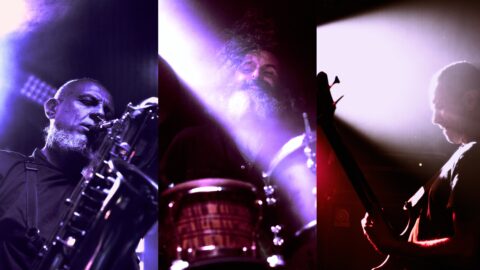The most vital music on the African continent is Afrobeat, a combination of African roots with American funk. It was born by the now-deceased drummer Tony Allen and saxophonist Fela Kuti, both from Nigeria, respected by jazz musicians and African music specialists alike. Their legacy has been followed by dozens of groups from the US, Europe and Africa. Nigerian guitarist and singer Adédèjì not only gave this half-century-old form a sparkle and new life, but also spiced it up with Frank Zappa influences. Adédèjì was nominated for Best Artist of 2023 by Songlines magazine, and his album Yoruba Odyssey is one of the seminal African releases of recent months.
Nigeria is Africa’s most populous country with 220 million people and its colonial past links it to the English-speaking world. When it gained independence and was ruled by a brutal dictatorship, Fela Kuti, the pioneer of Afrobeat, also became the regime’s most courageous critic. The political charge was heightened by the edginess of the music, whose rhythmic intensity drew on American funk. The capital of Nigeria at the time was Lagos, a city of eight million, and the boisterous music scene here attracted the most prominent British artists. Paul McCartney recorded his album Band on the Run here, and drummer Ginger Baker of Cream settled here for a time. Nobody knew anything about world music then, but Fela Kuti was touring the US and Europe. All this contributed to Afrobeat becoming the common musical language of Africa and the West, and influenced several generations of players.
The greatest new discovery of the genre is Adédèjì, the prodigy of Nigerian music. He began singing at the age of 6 in the church choir, played guitar from the age of 13, and studied music at the University of Nigeria and later in London and the Netherlands. His work remains spontaneous and lively, untouched by academicism. He called his third and best album Yoruba Odyssey to draw attention to his Nigerian roots. The Yoruba are one of the most powerful ethnic groups in West Africa, with a population of around 50 million. Moreover, descendants of Yoruba slaves make up a large part of the black population in Cuba and Brazil. The album was recorded in just three days in the same studio in Lagos where such prominent figures in Nigerian music as saxophonist Fela Kuti and guitarist King Sunny Ade have recorded in the past.





















